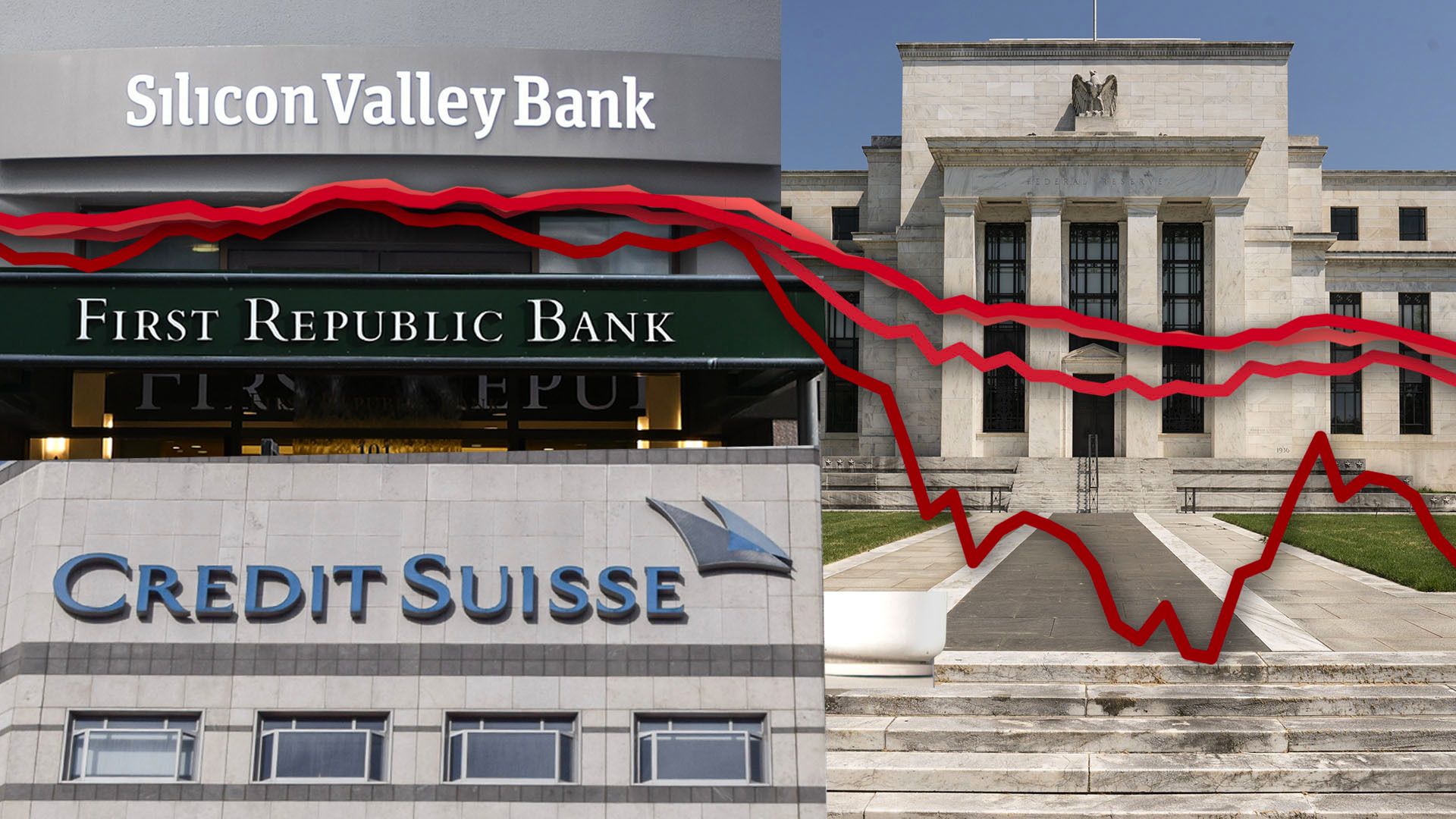Unraveling the Credit Suisse & SVB Collapses: Interconnectedness of Bank Failures


-
Credit Suisse, one of the world’s largest and oldest banks, has been bought by UBS in an emergency rescue deal to prevent a global financial crisis, marking the end of Credit Suisse as an independent entity and a major blow to Switzerland’s reputation as a banking hub.
-
Credit Suisse has been plagued by a series of scandals, legal issues, and management upheaval that eroded investor confidence and damaged its reputation in recent years.
-
Credit Suisse’s vulnerability was due to its issuance of AT1 debt instruments, which are hybrid securities that can be converted into equity or written off if certain capital ratios fall below predefined levels, and carry higher risks for investors.
-
Rising interest rates and inflation expectations triggered the failure of two US banks, which created panic among investors, and triggered a vicious cycle for Credit Suisse, where lower share prices triggered more conversions of AT1 bonds into equity, further lowering share prices.
-
The Swiss National Bank’s $54 billion financing backstop failed to calm market jitters, and with no other options left, the Swiss government pushed UBS to take over Credit Suisse in an all-share deal worth about $3.25 billion, less than half of what First Republic Bank was valued at before its collapse.
Credit Suisse, one of the world’s largest and oldest banks, has been bought by its Swiss rival UBS in an emergency rescue deal that was orchestrated by regulators to prevent a global financial crisis. The deal marks the end of Credit Suisse as an independent entity and a major blow to Switzerland’s reputation as a banking hub.
But how did Credit Suisse get into such a dire situation? And what does it have to do with the recent bank failures in the US? In this blog post, we will try to explain some of the key factors that led to this historic merger and its implications for the banking industry and investors.
The rise and fall of Credit Suisse
Credit Suisse was founded in 1856 as a lender for railway projects and industrial development in Switzerland. Over time, it expanded into a global financial powerhouse with operations in more than 50 countries and assets of over $1 trillion at its peak. It survived two world wars, the Great Depression, and the global financial crisis of 2008 without needing a government bailout.
However, in recent years, Credit Suisse has been plagued by a series of scandals, legal issues, and management upheaval that eroded investor confidence and damaged its reputation. Some of these include:
– In 2014, it pleaded guilty to helping US clients evade taxes and agreed to pay $2.6 billion in fines.
– In 2018, it settled a lawsuit with New York state for $10 billion over its role in selling toxic mortgage-backed securities before the 2008 crisis.
– In 2020, it suffered huge losses from its exposure to Luckin Coffee, Wirecard, Greensill Capital, and Archegos Capital Management – four companies that collapsed due to fraud or excessive leverage.
– In 2021, it faced criminal charges in Switzerland for spying on its former executives and employees.
These events led to several changes in leadership at Credit Suisse, but none seemed to be able to restore trust or stability at the bank. Its share price plummeted by more than 80% since 2015, making it one of the worst-performing major banks in Europe.
The link between Credit Suisse and US bank failures
The final straw for Credit Suisse came after two US banks – Silicon Valley Bank (SVB) and First Republic Bank – failed earlier this month due to liquidity problems caused by rising interest rates and inflation expectations. These failures triggered panic among investors who feared that other banks could face similar troubles.
Credit Suisse was particularly vulnerable because it had issued billions of dollars worth of AT1 debt instruments – also known as contingent convertible bonds or CoCos – which are hybrid securities that can be converted into equity or written off if certain capital ratios fall below predefined levels. These instruments were designed to provide additional capital buffers for banks after the 2008 crisis but also carry higher risks for investors.
As interest rates rose, so did the cost of servicing these debts. Moreover,
as Credit Suisse’s share price fell below certain thresholds,
some of these bonds were automatically converted into equity,
diluting existing shareholders’ stakes. This created a vicious cycle
where lower share prices triggered more conversions, which lowered share prices further, which triggered more conversions, and so on.
As investors dumped these bonds, Credit Suisse’s capital position deteriorated rapidly and its credit ratings were downgraded by several agencies. This made it harder for the bank to borrow money from other sources or retain deposits from customers. It also increased the likelihood of triggering a “non-viability event” where regulators could intervene and force the bank to write off all its AT1 debts or even liquidate its assets.
To prevent such an outcome, the Swiss National Bank (SNB) stepped in and offered a $54 billion financing backstop to Credit Suisse last week.
However, this failed to calm market jitters or stop customer withdrawals. With no other options left, the Swiss government pushed UBS – the country’s largest bank – to take over Credit Suisse in an all-share deal worth about $3.25 billion – less than half of what First Republic Bank was valued at before its collapse.
© 2023 Lighthouse Investments Pty Ltd. All Rights Reserved.

